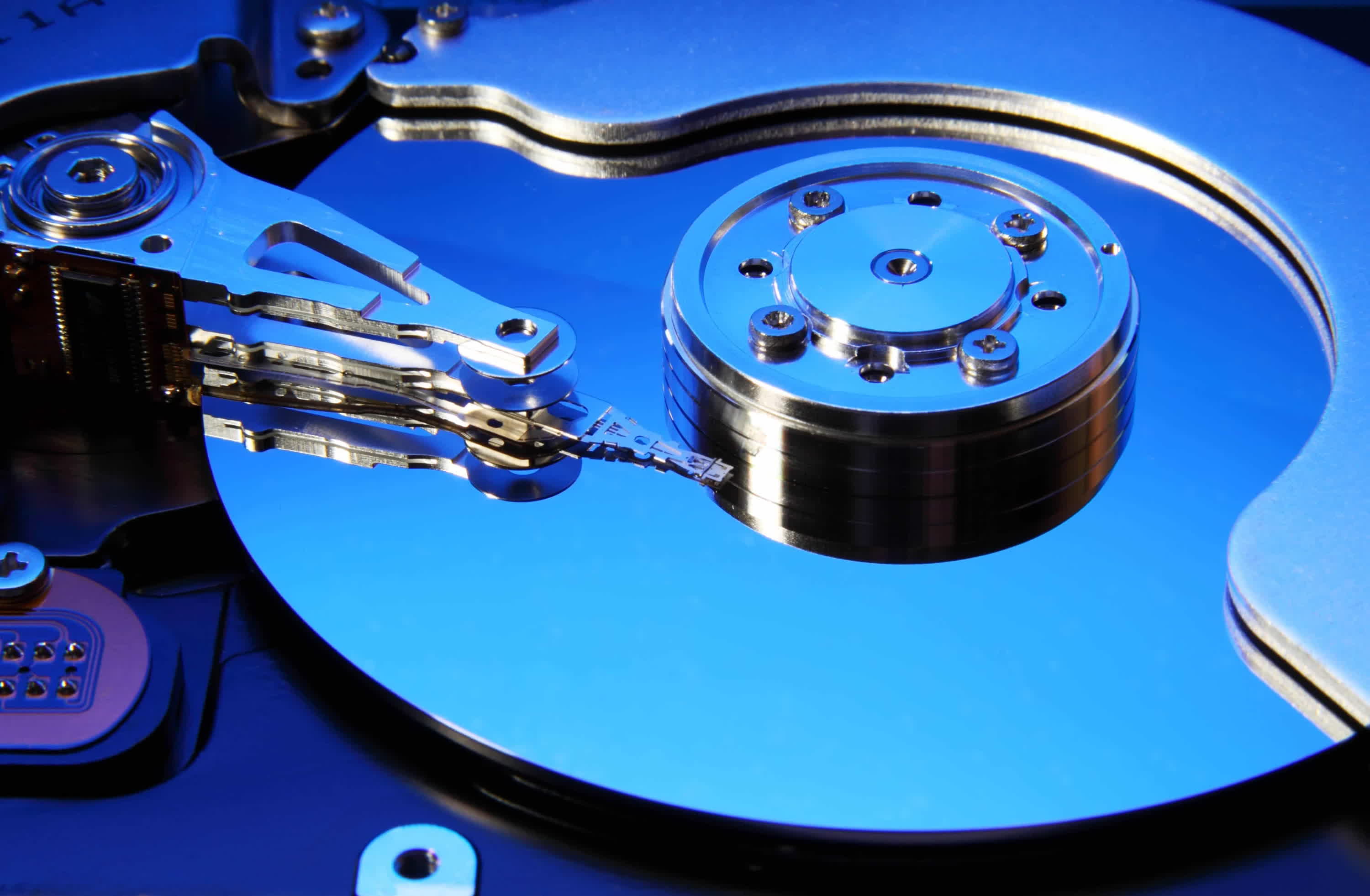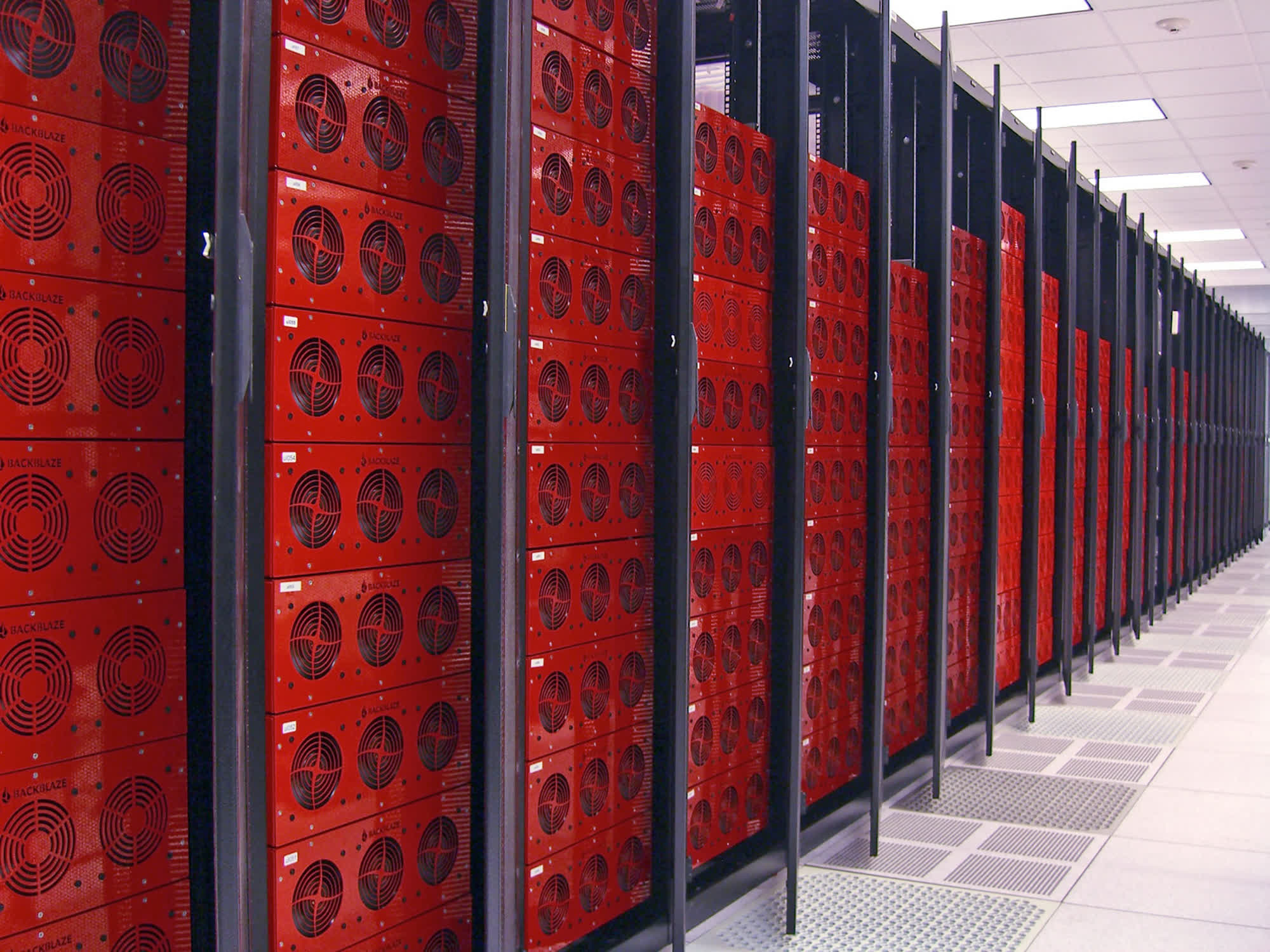Forward-looking: As a company mostly dealing in cloud storage and data backup, Backblaze has managed a lot of hard disks over the years. After crunching some numbers, a clear figure comes to light: the cost per gigabyte is steadily going down, and it will soon reach an unprecedented milestone.

Backblaze has kept records for most of the hard drives used in its cloud storage business. Since 2009, the San Mateo-based corporation purchased 265,332 HDDs and kept meticulous records of each one.
As recently revealed by Andy Klein on the company's official blog, in 2009 the average cost per gigabyte was $0.11. In 2017 during the first review of the cost of hard disks, Backblaze was spending just $0.03 per gigabyte. Today, when they are mostly getting 16TB HDD units, the storage cost has gone down to $0.014 per gigabyte.
NAND flash-based SSD units may have become the driving force for consumer spending and performance improvements, but the trusty magnetic disks have yet to go out of fashion. HDDs are still very popular in data centers and enterprise environments as magnetic storage technology is still evolving and the numbers provided by Backblaze show how much more convenient HDDs are (and will likely continue to be) compared to the largest SSD models on the market.

From 2009 to November 2022, magnetic storage cost experienced an 87.4 percent decrease per terabyte. The largest reduction has been recorded in the last five years, with a 56.36 percent decrease in the cost per gigabyte for all the drives. That's equal to a 0.52 percent decrease per month since January 2009.
Manufacturers are finding new ways to cram more platters in the same standard 3,5" form factor, figuring out how to increase the storage density while improving on energy consumption and production costs.
When will the race to the bottom of HDD costs end? For the time being, Backblaze is providing what the company thinks will be the next milestone in said bottomless race: in mid-2025, 22TB and 24TB drives are expected to have an average cost of $0.01 per gigabyte. And that's a stable street price not a sale price, the company said.
https://www.techspot.com/news/96972-hard-drives-expected-reach-penny-gigabyte-mid-2025.html